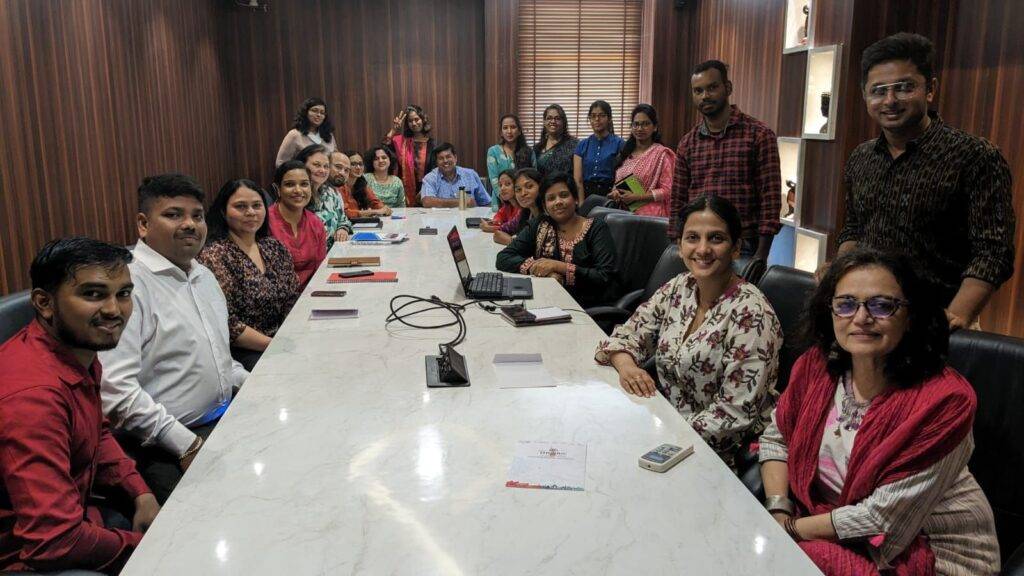Implementing Fondation Botnar’s Evidence to Action in India

This Blog Post was Originally Published Via Ennovent here.
In 2021, Ennovent partnered with Fondation Botnar to deploy its Evidence to Action (E2A) Framework in India. Fondation Botnar is a Swiss philanthropic foundation working to improve the health and well-being of young people living in cities around the world. Developed at the Melbourne Centre for Cities at the University of Melbourne with Fondation Botnar, the E2A Framework is a meta-learning framework developed to support evidence-building and learning processes across Fondation Botnar’s programmes and projects globally. This is a new collaboration with Fondation Botnar, in addition to Ennovent’s advisory role on Fondation Botnar’s Healthy Cities for Adolescents program in India.
The E2A framework focuses on embedding learning as a continuous process in Fondation Botnar’s projects. This learning is meant to redefine determinants of success, adopt participatory methodologies, and record and produce knowledge on what works and what does not work in complex urban settings. The framework will be applied as an overlay on projects’ Monitoring and Evaluation mechanisms, providing evidence of observed change from lived experiences of participants, particularly young people and project practitioners.
This framework will initially be implemented as a demonstrator project in India, and eventually, it will be scaled across all Fondation Botnar projects globally.
“The E2A is a tool that facilitates creating an enabling environment where local voices participate actively about issues and solutions and prioritises applying participatory processes. The framework provides a structure to capture observed change from diverse city stakeholders about a city’s context and identifies people’s aspirations of change. It is learning-centric about diverse contexts, systems, structures, and behaviours at different levels of a city ecosystem. It is a guideline only that allows room for customisation, being exploratory, and testing new tools and processes that enable efficient evidence building.”, says Joyati Das, Lead for Fondation Botnar’s Evidence Building & Learning Program.
Ennovent supports the implementation of E2A in India and plays a multi-fold role in facilitating partnerships and supporting knowledge building and dissemination. In March, Ennovent anchored a series of consultations with the E2A team, which will form the basis for the initial implementation.
First Steps
The team undertook project visits in Jaipur, Rajasthan and Bhubaneswar, Odisha, with representatives from Fondation Botnar and Ennovent. Over ten days, the team met with several practitioners, young people, and researchers from two of Fondation Botnar’s India programmes (Healthy Cities for Adolescents and Fit for Future) and their consortium members. These included World Resources Institute (with their regional partners – Magic Bus India Foundation, Aaina, I-India, and Humara Bachpan Trust), Safetipin (with Azad Foundation, The YP Foundation, Saarth, and Centre for Advocacy and Research), and ThinkZone, where the E2A team got to learn about their evidence-building approaches.

The visits offered significant insights into the way existing monitoring and evaluation systems were structured in the current projects and contributed towards informing how E2A could be rolled out in India. These consultations also provided the team with a chance to learn how to incorporate innovative learning tools that centre the experiences and the needs of the target population – in this case, young people – who are usually overlooked when programmes are designed for them rather than with them.
“Ennovent is pleased to support the implementation of the E2A framework with projects in India. Through its focus on learning, the E2A encourages practitioners and funders to think about more than result-oriented activities and encourages reflections on systems change; at the same time, the participation of the target population ensures that the learning is relevant to the local context.”, says Jaya Srinivasan, Senior Manager, Ennovent.
The Way Forward
“From the pilot phase that concluded in 2021 and informed the E2A practitioner’s guide, we are now transitioning into the ‘demonstrator projects’ phase. This phase will test the E2A implementation design and data architecture in diverse urban contexts.”, explains Joyati. This process will inform program implementation models for full-scale deployment across Fondation Botnar’s Cities portfolio.
The framework will be applied to select projects which involve practitioners and young people. To assist with this implementation, each project will also be assigned a learning partner. As the framework is implemented, it is expected that the learning emerging from the ground will not only contribute to strengthening city systems over a period of time but also encourage development practitioners to reflect innovatively about the complex city-wide problems which don’t have direct and clear solutions.